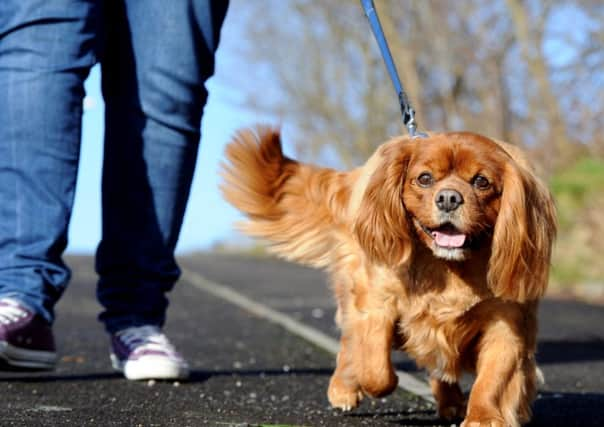Animal Surgery with Stuart Cooke: Too many treats is killing with love


You may think you’re being kind to your pet when you give him treats and an extra snack, but beware - being overweight carries many risks.
It’s a condition which can affect all types of animals, from hamsters to horses. Disease and mobility issues can cause or worsen weight issues. If a pet eats more ‘fuel’ than it is able to burn off its weight will start to creep up. Breed and age are contributing factors so it’s important to seek guidance as to how best to help your pet keep fit and healthy. Neutering brings many health benefits but can encourage weight gain in some pets. Regular weight checks to keepa watchful eye on your pet’s weight are recommended. Animals who are 20-25 per cent above their ideal bodyweight are considered to beobese. It can cause unnecessary suffering and be extremely disabling but it is preventable.
Advertisement
Hide AdAdvertisement
Hide AdYou should be able to see and feel the outline of your pet’s ribs without excess fat covering, and see and feel its waist, which should be clearly visible from above. Your vet should be able to demonstrate this for you and help you to keep track of your pet’s overall condition.
Calder Vets produces a leaflet with tips for keeping your pet trim and for reducing your pet’s weight.
Advice includes:
• Change your pet’s food to a specially made, low calorie diet over a period of five to seven days, to avoid tummy upsets. Home-made diets are rarelysuccessful as the animal usually becomes hungry and may start begging oreven dustbin raiding. Special diets contain high levels of fibre to ensure your pet feels full and gets the nutrients and vitamins he needs. Exercise and play both help to take his mind off food.
• Avoid titbits wherever possible. If you must treat your dog, use a portion of his daily allowance of dry food. Your dog having a chocolate digestive is theequivalent to you having the whole packet! Carrots are a healthy treat and are good for your pet’s teeth but ultimately it is best to avoid treats altogether if your pet is obese.
Advertisement
Hide AdAdvertisement
Hide Ad• Always weigh the food you have been instructed to give, don’t leave it to guess work. Keep your pet out of the kitchen when food is being prepared . Don’t give titbits.
• Try to feed little and often, at least three or four times a day. This gives your pet something to look forward to and reduces the risk of begging.
• Exercise is an important part of any weight loss program. Pet Health Advisors at your vet’s will guide you towards a suitable exercise plan for your pet.
Your vet should be able to help you assess your pet’s overall body condition.
Calder Vets offer a free advisory clinic to help you monitor your pet’s general health.